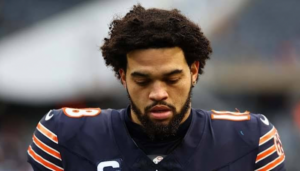In the UK, gambling is a prominent source of entertainment, in which sports betting is high
regarded. Sports Betting in the UK is historically significant and spans across centuries. In the
time it has existed till now, it has been regulated and almost restricted for decades, but recently
has its laws relaxed after betting activities were legalised in the Act of 1960.
To Britons, gambling makes itself accessible in form of bookmakers or sites that are regulated by
and follow the jurisdiction of the United Kingdom Gambling Commission. Greyhounds and
Horse racing, and Football are part of the top sports that have gained popularity overtime.
The UK has opened up its market for bookmakers, the last decade witnessing a massive growth
in this industry. But what else goes on in the UK sports betting industry? This article answers all
those questions.
For free bettings tips of the day click here
General UK Betting Statistics
To understand Sports Betting in the UK, you first need to understand the figures and activities
surrounding it. These statistics for General UK betting statistics, combine findings on bettor
behavior and why people bet.
- 47% of adult British citizens particpated in some form of gambling in the past month.
● The average Brit spends £2.60 on gambling weekly.
● Over 45% of people in the UK gamble monthly. 22% of gamblers bet more than twice
weekly, almost a third did once a week. 30% gambled less than once weekly to once
monthly, while under a sixth gamble less than once a month.
● Gambling is a popular pastime activity among Britons aged 35-55. Although the online
gambling surge attracts adults aged 25-34.
● 24 million people currently gamble online in the UK – 50% of online bettors use their
smartphones to access sports betting websites or use casino apps. - Men gamble more than women.
● Men have a higher tendency to particpate in gambling than women.
● 51% of UK males gamble, compared to 41% of the female population. 4 in 10 women in
the UK actively gamble, with 20% gambling regularly twice a week.
● A survey in 2018 showed that the gambling participation rate for British males was 37%,
and 28% among women. - The UK gambling industry generates a yearly revenue of £14 billion.
● Online casinos are the highest-grossing games of chance in the industry. Virtual casinos
made £3,190 million in 2019, non-remote betting £2,812 million and remote betting
£2,121 million.
● The National Lottery is the second highest-grossing sector of the industry, ticket sales
generated £3.9 billion equivalent to a GGY of £1.6 billion.
● Gambling is tax-free in the United Kingdom, meaning that gamblers keep all their betting
winnings. - The National Lottery is the most popular form of gambling in the UK.
● In 2021 30% of Britons participated in the National Lottery. 13% bet on other lotteries
and 10% at scratchcards.
● Slot games are the most popular form of online gambling at 69%, roulette at 14%, and
black jack at 6%.
● 7% of British citizens bet on sports in the past year.
● Football is the most popular sport bets on in the UK, citizens spent £786 million on
football betting making up 40% of all sports bets.
● Horse racing is the second most popular sport bet on in the UK. 3.8% of gamblers bet on
horse races with each-way bets. - Online gambling is legal and is regulated by the UK Gambling Comission.
● The UK is a leading player in online gambling globally, accounting for 15% of Europe’s
online gambling. It has 33.6 million registered accounts with licenced gamblers active.
● 35% of sports bettors believe they can earn profit from betting. 31% men feel they make
more profits than women 24% in betting.
● The average UK bettor has three online accounts. 44% have one account, but compulsive
gamblers own multiple accounts with various betting platforms.
● Fewer than 3% of gamblers earn a living from gambling.
Source: Don’t Disappoint Me & Review 42.
Top Sports Preferred By British Bettors
In the UK gambling scene, the sports betting industry dominates, and football is the most popular
option for UK gamblers.
However, this globally beloved sports isn’t the only thing Britions bet on. Below are other top
sports preferred by British Bettors.
Football
Football is the national sport in the UK and has a high percentage of bettors, making it most
gambled on sport. According to the UK Gambling commission, 5% of British people bet at least
once on this sport in the last month, and the total amount wagered was £11.4 billion – with 90%
of it online.
The most prominent choice is the Premier League, but the FA Cup and UEFA Champions
League final pulls a big draw from bettors too. So does the FIFA World CUp and UEFA Euro
Championship. The British bet £1.5bn on the previous World Cup.
Free Football bet tips of the day here
Horse Race
Over the year, more money was wagered on horse racing than football, £13.4bn to be exact.
Online gambling made up most of the revenue – 68% bet online, 30% on bookies, and 1% on the
races.
3.3% of the UK population bet at least once on horse racing in the last month, a number a little
lower than football.
But this number can’t be trusted because most of those bets were only on the biggest horse racing
events of the year. 1/3 of British adults bet a total of £100m on the Grand National in 2021,
which is UK’s most famous horse racing event. Followed by Cheltenham Festival with £500m
total wagers.
Tennis
Around £1.9bn is wagered on Tennis yearly, fueled by 0.2% of the UK adults who placed on
this sport in the past months.
Wimbledon is a favourite tennis tournament for British people to bet on, placing up to £100,000
wagers worth early in matches, and increasing it in the later rounds and final.
Greyhound Racing
Greyhound Racing only gets less than 1% bets of Brits, but it has an impressive revenue of
£1.7bn. 40% of these bets were online while the others were on Bookmakers or on track.
The English Greyhound Derby is the biggest dog racing event and has a total prize fund of
£175,000.
Cricket
In 2019, £760m was gambled on Cricket in the UK, through the internet, and more was spent on
Bookies. At least £800k is gambled on cricket yearly.
Ashes is the biggest Cricket event, but in terms of short-form cricket, the ICC Cricket World Cup
is the most-watched event, while the T20 World Cup is the second-most watched game.
Golf
While there are no records of the amount spent on informal betting yearly across Britain, it can
be said that £218m was wagered on online bookmakers.
The biggest Golf events are the Majors – the Masters, PGA Championship, the U.S. Open and the
British Open and the Ryder Cup which hosts Europe’s take on the USA in a match play format.
eSports
During the Coronavirus, virtual sports wasn’t hurt like other sports betting sectors, instead it
grew and so did its bets. Online betting companies witnessed a growth from eSports, from £50k
in March 2019 – £1.5m in March 2020, an increase of nearly 3000%.
eSports betting profits peaked at £4.6m in April 2020, before stabilising back to £1m -£2m
monthly since then.
The Electronics Sports League, League of Legends Championship Series, and FIFAe World Cup
are the massive eSports competitions that got lots of wagers.
American Sports
American sports like American football, basketball and baseball are becoming more popular
amongst UK bettors.
The NFL is favoured by British sports fans and bettors, especially since it holds a game in
London yearly. The Superbowl is the biggest event, accepting bets from 1/5th of British bettors
who bet on the 2021 match between the Bucaneers and the Chiefs.
Betting Regulations In The UK
Online betting has made sports betting easier and quicker in the UK, where people previously
relied on telegram service or the Royal Mail to manage their bets. With the access providers now
have to a wide and varied market, regulations are necessary to keep up with this changing
industry.
Regulations preserve the betting culture and ensure that bettors are protected from dishonest sites
and providers. Understanding them, ensure that you can track down reliable and fair sports
betting providers to bet with.
These are some betting regulations in the UK to know.
Licensing
The UK Gambling Commission is the official body charged with ensuring that all gambling
aspects in the UK are operating above board, and fairly for casinos, providers, and players too.
This commission enforces certain rules for UK operators, which are all designed to assure that
players don’t suffer unfair or impossible standards.
The laws of the Commission are listed in the Gambling Act 2005, and casinos or sports betting
providers can only earn a license to operate within the country by complying with them.
A licensed site will display their badge for you to see, or you could check the Government’s
public register to see if they are listed.
UK Gaming Sites Licensing Procedure
Remote gaming companies must register under the Gambling Licensing and Advertising Act of
2014 to obtain proper licensing for operating in the UK.
Operators need separate licensing for every gambling segment offered to players. Failure to
follow these regulations, violate the Act and attract criminal penalities. Media outlets too can’t
advertise for such companies.
The UK’s tax of 15% and the Act, has caused some major players to exit the UK market, while
those who stayed adjusted their pricing to cover the tax rate.
Providers
Providers are bound by the list of regulations from the Gambling Act 2005. One of such laws is
ensuring equal chances to everyone involved in a game – house and players. And to take and
process bets.
Compliance by gambling establishment, depend on their nature. Physical establishments are
subject to regular checks, Slot machines must rely on a Random Number Generator to ensure
fairness and stop providers from rigging games. Digital casinos and sports betting sites are
checked for the mechanics behind the site.
Players
Few UK betting regulations curb players ability to join sports betting activities, but majority
check that players follow fair play.
Players can be investigated for using sports gambling or any other gambling activities to mask
crimes like money laundering. The Commission is always watching, so don’t do anything that’ll
suggest illegal activity.
Also, any person of position in a particular sport that grants bettors access to information other
bettors don’t have, will face a number of regulations.
Endorsements and Advertisements
Sports gambling is a regular topic of advertisement in TVs and radios. This created a lot of
controversy, because people who were below the gambling age limit were exposed to the ADs.
To fix this, the government stepped up to control the situation, although there was backlash
regarding this same issue.
Laws Regarding Sports Betting Industry
The Laws which govern the gaming community, cover the betting industry too. Land-based
sportsbook options have existed for generations in the UK. After these operators where
legitimised in 1960, these sportsbook shops led the gambling scenes.
Although brick and mortar sportsbook brand dominated and monopolised the industry, few
online sportsbooks options have recently topped the charts.
The government passed a law adding extra 15% imposed tax on offshore-based local
bookmakers, and instead of backlash, they remained updated, giving the UK a stand as one of the
most competent jurisdictions in sports betting.
Safety of UK Bettors
Thanks to the safety measures enforced by the government and influence of reputable gaming
programs, UK-based bettors enjoy safe gambling practices, weak bettors are protected, and
under-aged sports betting is illegal.
On the other hand, the United Kingdom Gambling Comission controls the function of all online
or offline operators, making it one of the world’s safest jurisdictions.
The London Stock Exchange features most online sportsbooks as tradable commodities.
Numerous schemes and policies – GamStop, GamBan, GamCare, etc are created to assist and ban
problematic gamblers from gambling.











